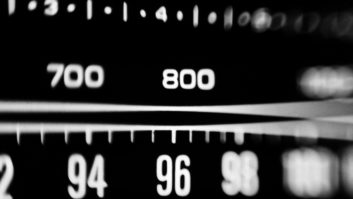iHeartMedia faces a possible $20,000 fine in a contest rules violation case. The Federal Communications Commission said the company’s history of contest rule violations played a factor in the amount of the penalty.
The FCC Enforcement Bureau said the case involves a contest — ironically called “You Can’t Win” — that was held by WBGG(FM) in Fort Lauderdale, Fla.

A person who attempted to participate on May 30, 2019, had won a separate station contest, the “Southwest Flyaway Fridays,” on March 1, so the station call screener didn’t allow him to participate. The listener then argued that the station wasn’t following its own contest rules.
When the FCC inquired, the company replied that an employee had applied a past exclusion rule incorrectly but it also said this wasn’t relevant because the listener would have been ineligible anyway. But the commission ruled that the “plain language” of the contest rules indicated otherwise.
Even if there was an ambiguity, it continued, FCC precedent is that ambiguous rules are to be “construed against the interests of the promoter of the contest.”
The commission also didn’t accept the station’s argument that the person raising the complaint didn’t have “standing” in the case. (Readers who are involved in creating radio station contest rules may wish to read the FCC NAL for specifics of why the commission didn’t accept iHeart’s various arguments.)
The base forfeiture in contest cases is $4,000 for each violation; the FCC opted to increase the proposed penalty to $20,000 in part because the station also failed to maintain the contest rules on its website for at least 30 days after the end of the contest, as required.
But another factor in raising the amount, the FCC said, is that “the licensee is the pro forma assignee of an affiliate with a history of violating the Contest Rule.” The commission listed several examples of contest cases 2000 to 2012 involving stations owned by what was then called Clear Channel.
The station has 30 days to pay the fine or to reply with any counter argument.
This was the second time in as many days that the FCC has mentioned problems of past rule compliance by a major broadcast group; in an unrelated case we reported earlier, the commission took Cumulus to task for various past EEO and other infractions.












